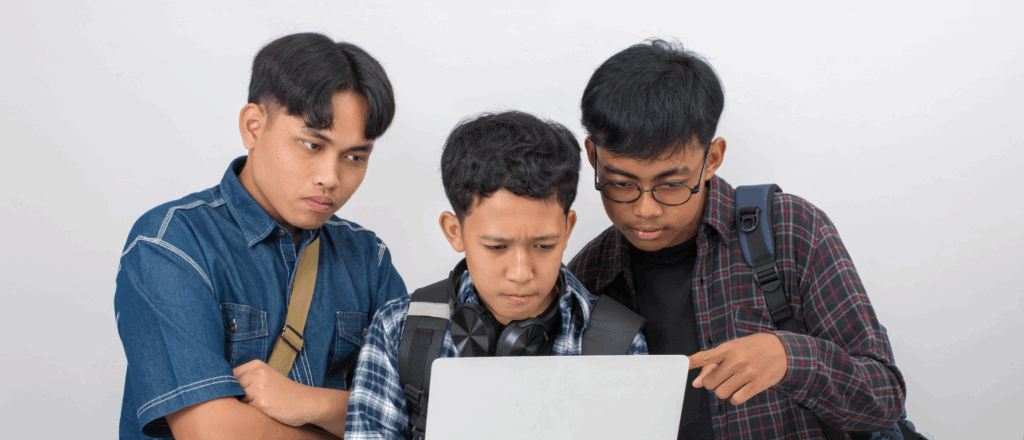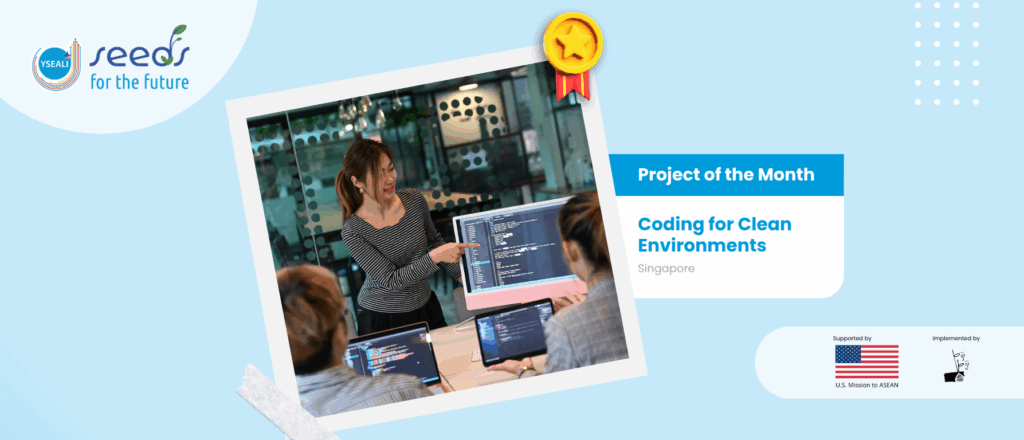About the Project
Coding for Clean Environments introduces students to the fundamentals of Python and block-based programming, paired with applied learning to address environmental issues such as cleaning up pollution and responsibly managing natural resources.
Through hands-on activities, students build simple apps and data visualizations that address real challenges like illegal deforestation and urban waste. The curriculum is tailored to Southeast Asia’s environmental and educational context and is delivered in partnership with local schools and organizations.
Designed for practical use and regional relevance, the program offers a scalable model for integrating tech education with hands-on problem solving.
Why do you care about this specific topic/issue?
With backgrounds in education, our team has seen how limited access to quality STEM learning can hold students back. This drives our commitment to make coding practical, engaging, and accessible. By combining technical instruction with real world applications, we help students use technology to address challenges they are facing.
Why did you decide to start this project?
We began this project after noticing a common gap where many coding programs teach technical skills without connecting them to real world outcomes.
From our own experience creating responsible energy use solutions through code, we saw how technology can directly support environmental improvements. That insight shaped our goal to show students that coding is more than a skill: it is a tool for solving meaningful problems.
What are your goals for this project?

Our project’s core objectives are clear and actionable. We are dedicated to providing youth with fundamental coding and Python skills, alongside hands-on experience in designing practical solutions.
The program builds problem solving, critical thinking, and collaboration while making STEM education more engaging and accessible. We also aim to strengthen our partner organizations’ capacity to deliver high quality, tech focused learning and to spark long term interest in computer science through real world applications.
How will YSEALI Seeds help you achieve your goals?
Support from YSEALI Seeds for the Future allows us to scale this program across Southeast Asia and reach students in areas with limited access to STEM education. It also connects us with other organizations, opens opportunities for peer learning, and strengthens our collaboration with local partners and embassies.
The funding and network help establish proof of concept, enabling us to grow beyond early-stage barriers and build a stronger foundation for long term expansion.
What have you accomplished and implemented so far?

We have finalized the workshop structure, confirmed Singapore as the launch location, and identified participating schools and nonprofit partners. The curriculum has been designed to integrate coding with environmental problem solving, and we are now working with local facilitators to adapt materials for each country. These early steps lay a strong foundation for successful implementation starting this September.
What are the most significant lessons learned you’ve experienced so far?
We learned that running a workshop is only the beginning. Building follow-up systems and keeping students engaged after the session are just as important. We also realized early coordination with local partners is crucial, especially for logistics like equipment access and language adaptation. These insights are shaping how we plan across all three countries.
What are the success stories you can share with others?

One important lesson we’ve learned is that preparing a coding workshop goes far beyond curriculum design. Coordinating logistics like laptop access, stable internet connection, and venue setup, especially across different countries, requires early alignment with local partners.
We also realized the value of designing workshops with long-term relevance in mind. This includes considering how students can continue applying what they learn after the sessions end, and identifying support structures that encourage ongoing learning.
